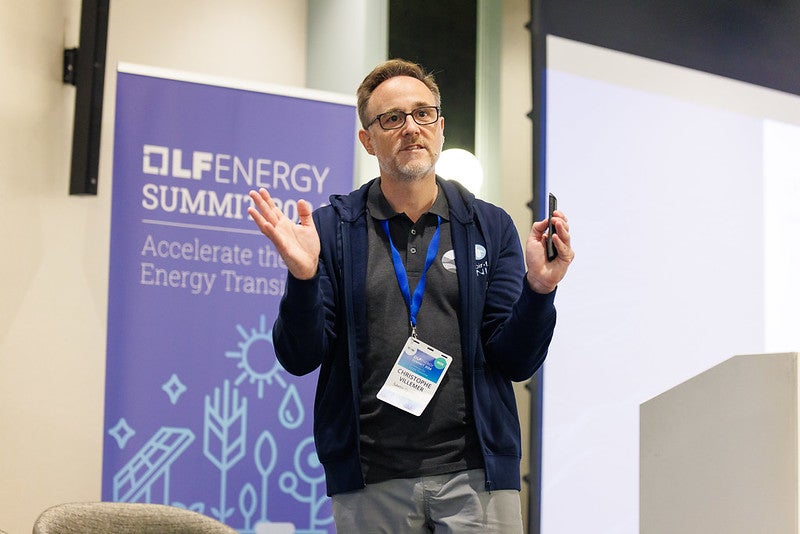LF Energy Summit Recap and Video: Building an Open Source Business: The LF Energy SEAPATH Example with Christophe Villemer of Savoir-faire Linux
In a keynote delivered at LF Energy Summit 2024 in Brussels, Christophe Villemer of Savoir-faire Linux shared his journey and lessons learned from building a successful open source business, focusing on the LF Energy SEAPATH project. Drawing from more than two decades of experience in the open source world, Villemer reflected on the growing opportunities in the energy sector and the transformative potential of open source technologies (full video follows below). Here are the key takeaways from his talk:
1. The Open Source Opportunity in Energy
Villemer highlighted the unprecedented transformation the energy sector is undergoing, driven by the shift toward digitalization and renewable energy. For engineers and entrepreneurs alike, this transformation offers countless opportunities for innovation. Open source, according to Villemer, plays a critical role in enabling faster, more flexible solutions in this evolving landscape, particularly in highly constrained environments like energy.
2. Savoir-faire Linux and Open Source Leadership
Savoir-faire Linux has been deeply embedded in the open source community for over 20 years. Villemer explained how this commitment to open source has positioned his company to help businesses embrace open source strategies for rapid product development. A standout example was Savoir-faire Linux’s work on the Airbus A220, where an open source approach significantly reduced time-to-market for their aircraft information server.
3. The LF Energy SEAPATH Project: A Catalyst for Virtualization
SEAPATH, a flagship project under LF Energy, represents a breakthrough in the virtualization of digital substations. Initially unfamiliar with digital substations, Savoir-faire Linux collaborated with RTE (Réseau de Transport d’Électricité) to help virtualize protection systems. SEAPATH is a real-time operating system for digital substations with robust cybersecurity features and open governance. Villemer emphasized how SEAPATH is not reinventing the wheel but rather aggregating the best open-source components, ensuring its scalability and reliability.
4. Overcoming Market Challenges in Open Source Business
Despite its technical success, Villemer noted that building a business around SEAPATH and similar open source projects presents challenges. One of the primary concerns is whether there is a market large enough for multiple players beyond RTE to adopt the technology. He also discussed the risk-averse nature of the energy industry, which can slow down the adoption of open source solutions. However, Villemer believes the momentum is growing, as more utilities and vendors explore and pilot SEAPATH in various ways.
5. Collaboration and Open Governance: Key to Success
A significant theme in Villemer’s keynote was the importance of open governance and collaboration in building successful open source projects. LF Energy, with its transparent governance model, ensures that all stakeholders—utilities, vendors, and software companies—have a voice in the project’s development. This approach, Villemer explained, strengthens resilience, fosters innovation, and builds trust in the technology’s long-term viability.
6. Looking Ahead: Scaling and Business Models
Villemer concluded by reflecting on the future of SEAPATH and the broader open source business landscape in energy. He called for a diverse ecosystem where multiple companies, not just Savoir-faire Linux, build on SEAPATH to offer support, products, and services. Villemer encouraged the industry to embrace the challenges of virtualization, cybersecurity, and changing business models to scale up open source solutions in energy.
